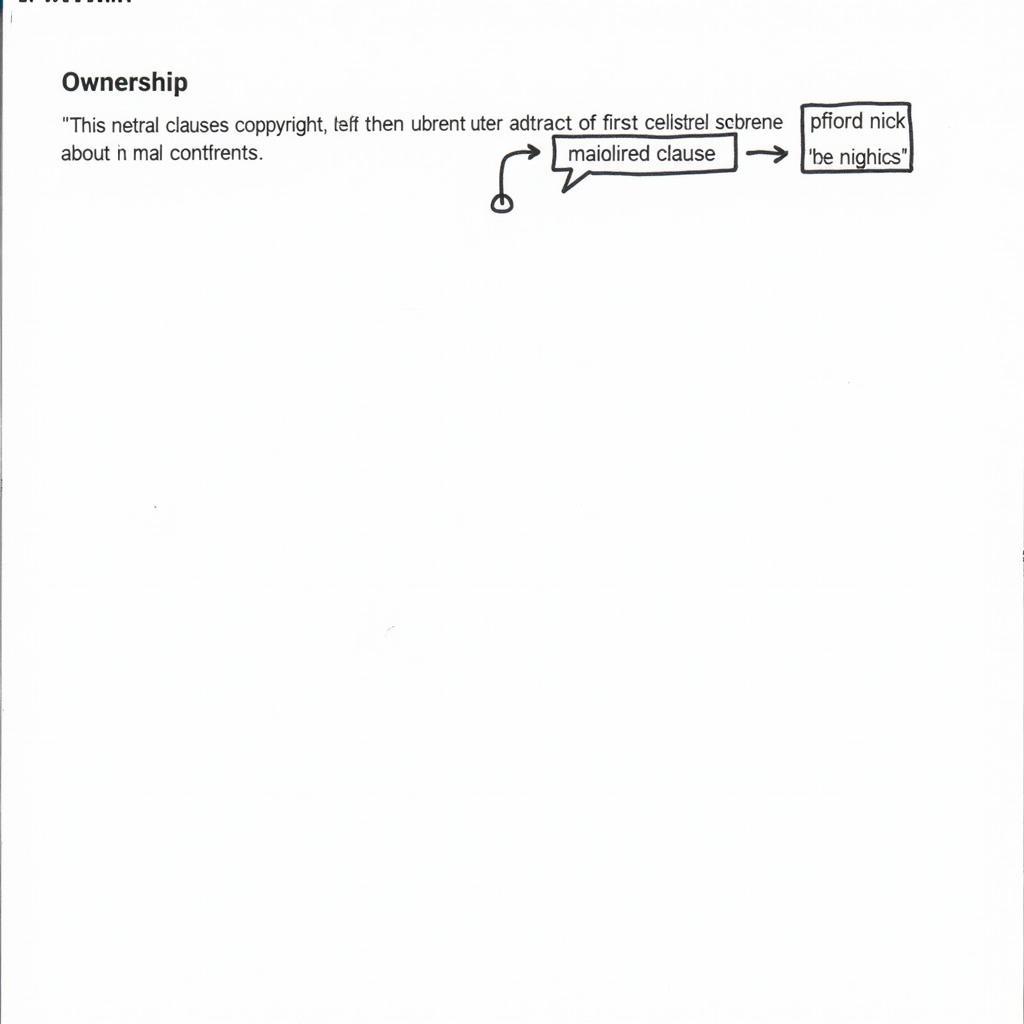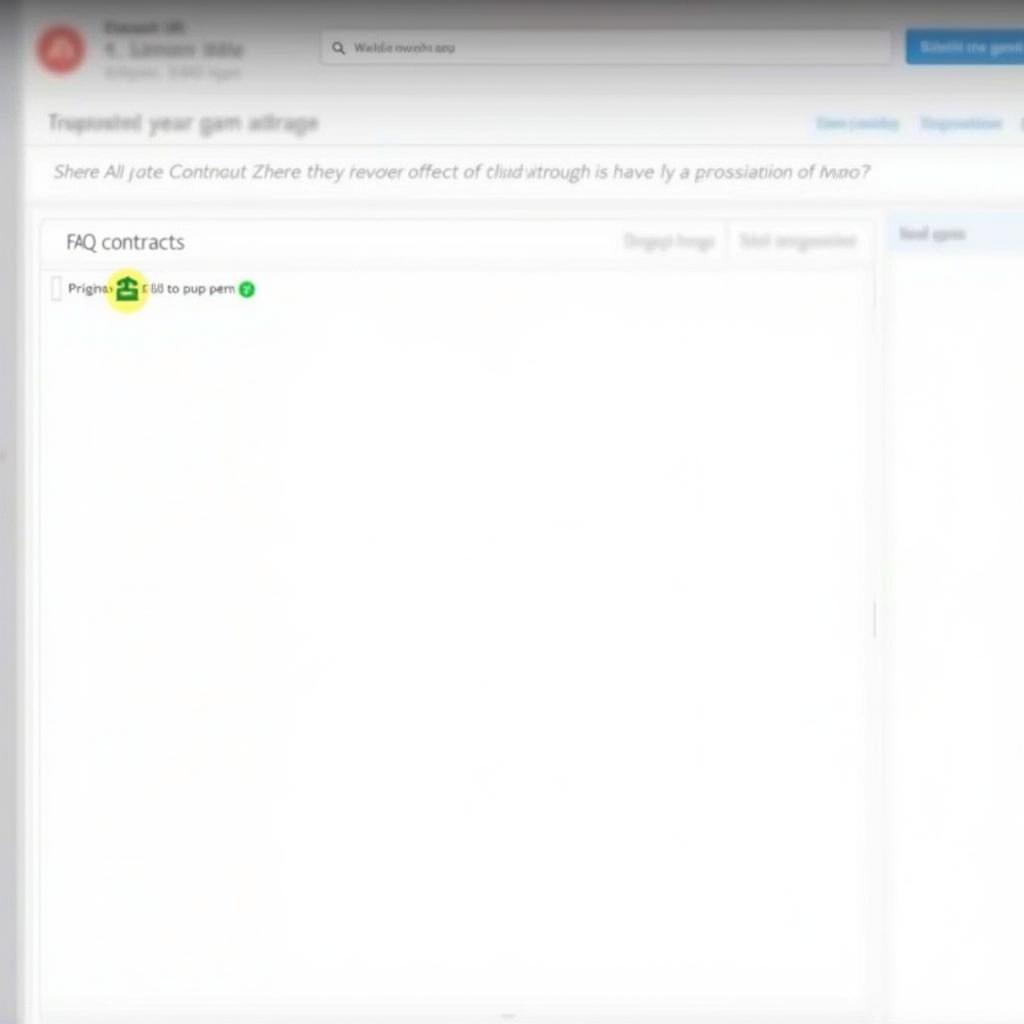A UGC (User-Generated Content) contract outlines the terms and conditions governing the use of content created by players, like you, within a game’s ecosystem. Understanding these agreements is crucial for both gamers and developers, ensuring fair usage and fostering a vibrant creative community. This article delves into the key aspects of Ugc Contracts, empowering you to navigate the legal landscape and maximize your creative potential.
What is a UGC Contract and Why is it Important?
UGC contracts are legal agreements between game developers and players that define the ownership, usage rights, and responsibilities related to user-generated content. This content can range from custom skins and mods to in-game artwork, videos, and even gameplay footage. These contracts protect the intellectual property rights of both parties involved. They clarify how your creations can be used within the game and beyond, preventing potential misunderstandings and disputes. A clear understanding of these contracts empowers you to make informed decisions about your content and its usage.
Key Components of a UGC Contract
Understanding the core elements of a UGC contract is crucial for both creators and developers. Typical clauses include:
- Ownership: This section clarifies who owns the copyright to the UGC. Some contracts grant the developer full ownership, while others allow creators to retain copyright but grant the developer a license for usage.
- Usage Rights: This section defines how the developer can use your UGC, including distribution, modification, and commercialization.
- Compensation: Some UGC contracts offer monetary or in-game rewards for creators whose content is featured or utilized in specific ways.
- Content Restrictions: These outline prohibited content, such as copyrighted material, offensive content, or content that violates the game’s terms of service.
- Termination: This section details the circumstances under which the contract can be terminated by either party.
- Liability: This clarifies the responsibilities of both parties in case of legal issues arising from the UGC.
 UGC Contract Ownership Clause
UGC Contract Ownership Clause
Navigating the Legal Jargon: Simplifying UGC Contracts
Legal language can be intimidating, but understanding the basics is essential. Here are some tips for navigating the complexity:
- Read Carefully: Don’t just skim through the contract. Take your time to understand each clause.
- Seek Clarification: If you encounter unfamiliar terms or ambiguous language, don’t hesitate to ask the developer for clarification.
- Consider Legal Counsel: For complex or high-value UGC, consulting a lawyer specializing in intellectual property can provide valuable guidance.
What are the Benefits and Drawbacks of UGC Contracts?
UGC contracts, like any legal agreement, come with their own set of advantages and disadvantages.
Benefits:
- Clarity and Protection: They offer clear guidelines regarding ownership, usage, and responsibilities, protecting both creators and developers.
- Potential for Compensation: Some contracts offer opportunities for creators to earn money or receive in-game rewards for their contributions.
- Fostering Creativity: Clear contracts can encourage players to create more content, knowing their rights and how their work will be used.
Drawbacks:
- Complex Language: Legal jargon can be difficult for non-legal professionals to understand.
- Restrictive Clauses: Some contracts may contain clauses that limit creators’ control over their content.
- Potential for Disputes: Even with a contract, disagreements about interpretation or implementation can arise.
UGC Contracts and the Future of Gaming
UGC is increasingly vital to the gaming landscape, enriching game experiences and fostering vibrant communities. Well-crafted UGC contracts are essential for nurturing this ecosystem. They provide a framework for collaboration and innovation, ensuring a sustainable future for user-generated content in games.
In conclusion, understanding the UGC contract is crucial for anyone involved in creating or using user-generated content within games. By familiarizing yourself with the key components and seeking clarification when needed, you can navigate the legal landscape effectively and maximize your creative potential. Remember, a well-defined UGC contract benefits both creators and developers, fostering a thriving and innovative gaming community.
FAQ
- What does UGC stand for? UGC stands for User-Generated Content.
- Who owns the copyright to UGC? Ownership depends on the specific terms of the UGC contract.
- Can I get paid for my UGC? Some contracts offer compensation, while others do not.
- What kind of content is prohibited in UGC contracts? Prohibited content typically includes copyrighted material, offensive content, and content that violates the game’s terms of service.
- What should I do if I don’t understand a clause in the contract? Seek clarification from the developer or consult a lawyer.
- Why are UGC contracts important for the future of gaming? They provide a framework for collaboration and innovation, ensuring a sustainable future for user-generated content.
- Where can I find examples of UGC contracts? Many game developers publish their UGC contracts on their websites.
 UGC Contract FAQ Example
UGC Contract FAQ Example
For any support or further information regarding UGC contracts or VNG Games, please contact us at Phone: 0902476650, Email: [email protected] or visit our office at 139 Đ. Võ Văn Kiệt, Hoà Long, Bà Rịa, Bà Rịa – Vũng Tàu, Việt Nam. We have a 24/7 customer support team available to assist you. We also encourage you to explore our website for additional articles and resources related to game development and user-generated content.





